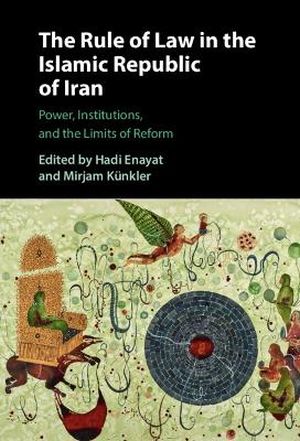
After Iran's 1979 Revolution, Ayatollah Khomeini denounced the secular legal system of the Pahlavis and pledged his commitment to distinctly Islamic conceptions of law and justice: the application of both the shariʿa and the rule of law (hākemiyat-e qānun) became major ideological pillars of the Islamic Republic. This precipitated the Islamization of the legal system, the judiciary and the courts, a process which still continues today and is the subject of intense ideological and political contestation. The Rule of Law in Iran is the first comprehensive analysis of judicial and legal institutions of the Islamic Republic of Iran in their social, political and historical contexts. Scholars and practitioners of law, many with experience of working in Iran, shed light on how the rule of law has fared across a variety of areas, from criminal law to labour law, family law, minority rights, policing, the legal profession, the visual and performing arts, trade law, and medicine.